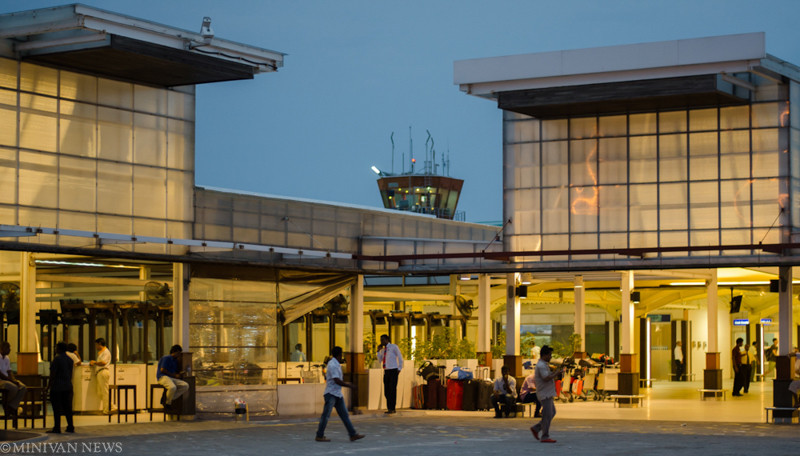The Maldives faces a payout of US$170million to a bank in the dispute over the government’s abrupt takeover of the main airport from an Indian developer in 2012, Minivan News can exclusively reveal.
India’s Axis bank, which loaned US$160million for airport development in 2011, is seeking repayment of the loan and an additional US$10million in interest and fees from the Maldives, according to submissions made to a Singaporean arbitration tribunal.
The airport developer, GMR group, is meanwhile claiming US$803million from the Maldives in a separate arbitration after the tribunal ruled the government had “wrongfully” terminated the concession agreement.
President Abdulla Yameen estimates Maldives will be required to pay a much lower figure of US$300million to GMR. If the Axis Bank wins its claim, the payout of US$470million may cripple the domestic economy.
Although total foreign reserves stood at US$614.7million by the end of 2014, usable reserves stood at only US$143.9million, according to the central bank.
Public debt meanwhile stands at 75 percent of GDP and is likely to increase this year with the government seeking additional loans to finance key projects including a US$600million loan for airport development.
The attorney general’s office last year denied receiving notice of the arbitration, but since then has been silent on the proceedings.
The office declined to comment on the arbitration today, and the ministry of finance was not available for comment at the time of going to press.
A verdict is expected in both the GMR and Axis Bank arbitrations by June.
Early termination?
The Axis bank, in a submission in February, said it is entitled to recover the US$170million from the government under an agreement that states the Maldives state is liable for the loan in the event of an early termination or an expropriation of the airport.
But the government in its first statements in 2013 denied having knowledge of the agreement with the Axis Bank.
When the signed agreement was produced, the government said declaring the concession void ab initio or invalid from the outset does not amount to an early termination.
When the separate tribunal in the first phase of the GMR arbitration said the concession agreement was valid and constituted a “wrongful repudiation” (refusal to honor the contract), the government in March this year claimed that “repudiation” alone does not lead to termination.
The government went on to blame the GMR for terminating the concession agreement by “accepting” the government’s repudiation, and said no force was used in the takeover.
Axis Bank is “perfectly entitled to recover the loaned sums from the party to which it loaned them” i.e. GMR, it continued.
However, the Axis Bank contended the Maldives argument to be “highly semantic” and said: “what words were used by the government to characterize its own acts are irrelevant to establishing whether the acts of the government amounted to an expropriation.”
The bank also pointed out the Maldives civil aviation authority had cancelled GMR’s aerodrome certificate from December 7, 2012, making it “legally impossible for GMR to continue to operate the airport.”
The government also accused the Axis Bank and GMR of colluding to extract large sums of money, claiming the infrastructure giant had paid for the bank’s litigation fees for the separate arbitration process.
As an Indian Bank for whom GMR was a major customer, the Axis Bank wanted to cement its relationship with GMR “by assisting it in making a very substantial claim for damages,” the government alleged.
The Axis Bank has dismissed the allegations as baseless.
